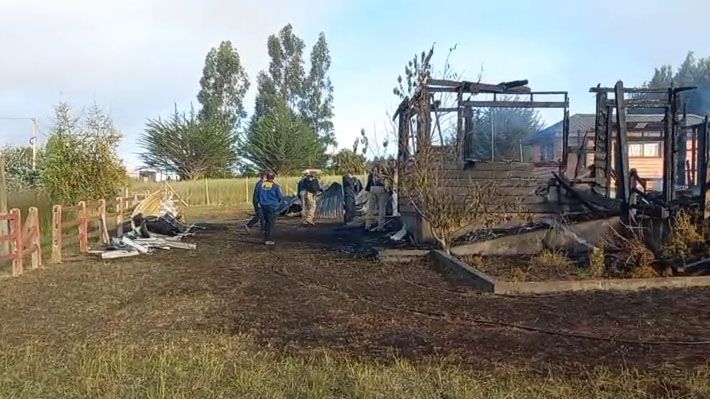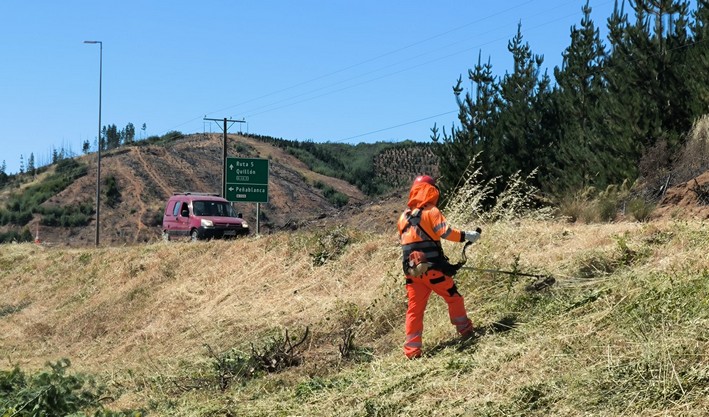Knowledge Transfer: A Shared Value Project Between ARAUCO and SMEs
In May 2019, ARAUCO transferred 17 years of research to small landowners interested in producing GloNi, a species that combines the best traits of Eucalyptus globulus and Eucalyptus nitens, offering higher pulp yield, rapid growth, and greater cold tolerance. Three years after this milestone, nurseries with this new forestry alternative are already producing with improved genetic quality, enhancing the richness of the country's forestry heritage.
ARAUCO, through the Genetic Improvement Cooperative, made its knowledge and technology available to third-party private nurseries to produce GloNi clones, a new eucalyptus forestry alternative developed by its research center Bioforest after 17 years of work.
This knowledge transfer is enabling small and medium-sized forest owners in the country to significantly improve their forestry business thanks to higher productivity and pulp quality in their plantations.
GloNi is the species that combines the best of Eucalyptus globulus and Eucalyptus nitens—retaining the wood properties of the former and the fast growth and cold tolerance of the latter.
"Transferring knowledge about GloNi and everything we know about its production is a way to create a shared-value project where small and medium-sized landowners benefit by planting a species with better growth and higher sales value compared to nitens, thus improving their profitability. ARAUCO, in turn, gains access to higher-quality raw materials or more competitive market prices. That’s why we didn’t just transfer knowledge but a complete technological package to ensure proper propagation—planting correctly and achieving better harvests than before," said Claudio Balocchi, Senior Researcher at Bioforest, during the recent Trawu Forestal 2022. "We are pleased with this decision to share knowledge and research with other industry players," he added.
THE GLONI JOURNEY
Bioforest researchers and ARAUCO geneticists began the program in 1999 to develop a hybrid combining the best traits of globulus and nitens. After hundreds of trials and tests, this product now yields 30% more pulp per hectare. Another major advantage is that its early growth occurs in nurseries under controlled humidity, temperature, irrigation, and nutrition conditions.
"In Chile’s forestry sector, the genetic material used by large companies differs greatly from that of small and medium-sized owners. Through the technology transfer agreement between ARAUCO and the Genetic Improvement Cooperative, GloNi is enhancing the plantations and forestry heritage of many entrepreneurs," the expert noted. "We are pleased with this decision to share knowledge and research with other industry players," he added.
During Trawu Forestal 2022, Balocchi outlined Bioforest’s path in creating this new forestry alternative for SMEs, closely aligned with product development by large companies.
For the Genetic Improvement Cooperative, this knowledge and technology transfer aligns with its mission to strengthen the country’s forestry productivity. Its Executive Director, Fernando Dropelmann, acknowledged the value of ARAUCO’s decision for many SMEs, as it fosters shared knowledge that enables small and medium-sized owners to succeed in forestry investments with top-tier material.
Tripán, Agromen, Mahuida, Piedra del Águila, Tres Robles, and Forestal Anchile have received this technological knowledge through the Genetic Improvement Cooperative.
GloNi Data
• GloNi, developed by ARAUCO, required 17 years of research
• 260,000 controlled crossbreedings
• 79 field trials
• Over 2,000 hybrid clones tested
• Multidisciplinary work involving 100 people
• Nursery growth takes 8 to 10 months to produce a 30 cm tall plant with a stem diameter over 4 millimeters.
BIOFOREST: KNOWLEDGE AND EXPERIENCE
This ARAUCO center of excellence and research has over 30 years of experience generating and applying knowledge to address the business’s priority needs. From its early years, Bioforest maintained an R&D focus, expanding from forestry to pulp, panel, and wood businesses. Over time, it incorporated researchers from various universities, part of scientific, academic, and technological networks in Chile and worldwide.
This has strengthened its network of technological centers, collaborating to find solutions for ecosystem-related challenges while ensuring profitable and sustainable management. Species improvement, productivity, carbon neutrality, ecological conservation and restoration, water scarcity, and other issues form an ever-growing list of challenges.
Sebastián Fernández, ARAUCO’s R&D Manager, explains, "Through our research center, we apply science and technology to business priorities, focusing on productivity and sustainability, while deepening our understanding of the species in our heritage." He adds, "The company strongly believes that combating climate change requires more nature. The world has presented complex challenges demanding real commitments to address the climate crisis. Trees and wood are key to tackling this issue."
Today, Bioforest has a team of over 50 researchers constantly developing technologies and processes evaluated for strategic business value. "This work involves active collaboration with universities in Chile and globally," says Fernández.
He notes that beyond R&D projects, ties with academic institutions include thesis support and internships. Another avenue is Bioforest researchers pursuing doctorates, "which not only ensures highly qualified professionals but also maintains direct links with universities in Chile and worldwide," he concludes.

















